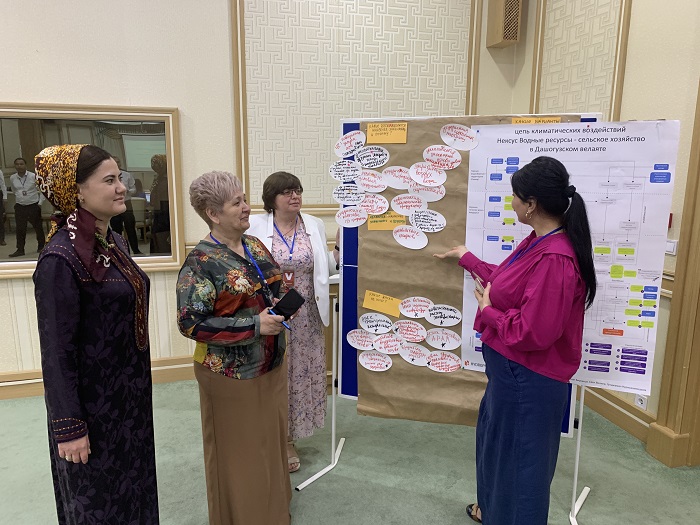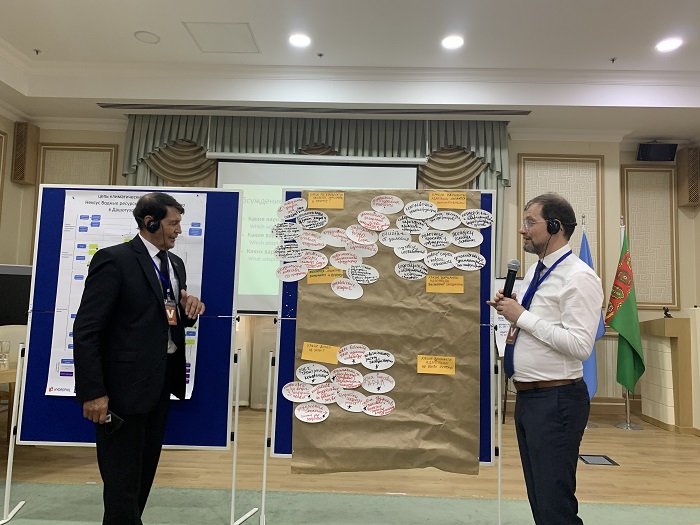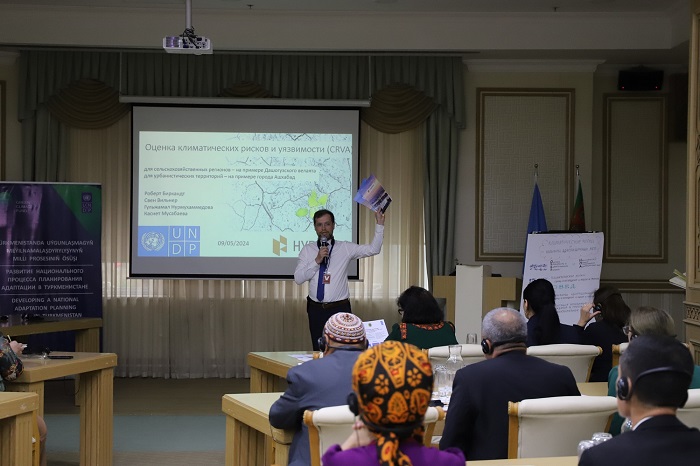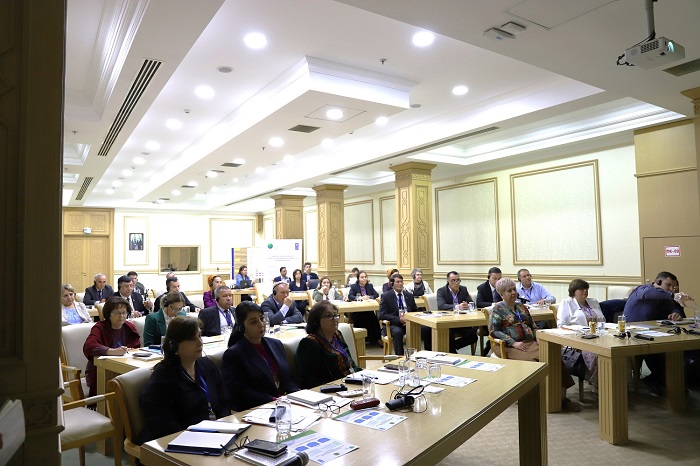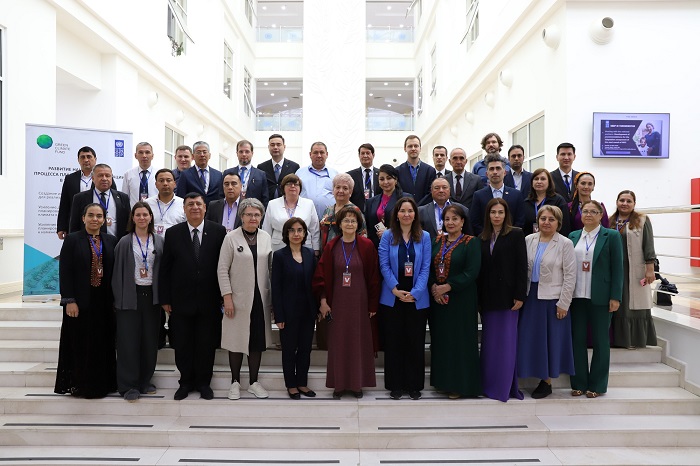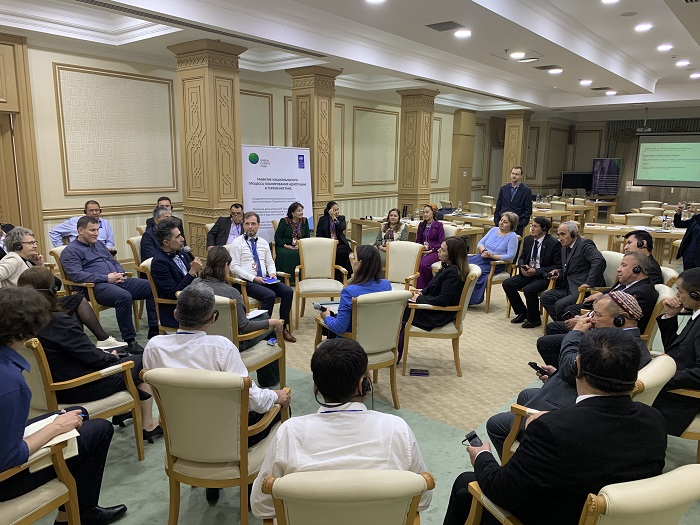 The United Nations Development Programme (UNDP) and the Potsdam Institute for Climate Impact Research (PIK) with the support of German Agency for International Cooperation (GIZ) held a joint workshop on “Strengthening Climate Resilience of the Water-energy-food-ecosystem Nexus in Turkmenistan and Central Asia.”
The United Nations Development Programme (UNDP) and the Potsdam Institute for Climate Impact Research (PIK) with the support of German Agency for International Cooperation (GIZ) held a joint workshop on “Strengthening Climate Resilience of the Water-energy-food-ecosystem Nexus in Turkmenistan and Central Asia.”
The event was organized within the framework of the project “Developing a National Adaptation Planning Process in Turkmenistan” implemented by UNDP with the financial support of the Green Climate Fund (GCF) in cooperation with the Ministry of Environmental Protection of Turkmenistan, and the Green Central Asia initiative, launched by the German Federal Foreign Office in partnership with PIK and German Research Centre for Geosciences (GFZ).
The aim of the workshop was to bring together key stakeholders, including policymakers, researchers, and practitioners, to discuss the interrelated issues related to climate change, hydrology, and agriculture, as climate change poses a serious threat to hydrological systems and agriculture, with cascading effects on human security.
The event was attended by representatives of the national ministries and state entities, including the Mejlis, the Ministry of Foreign Affairs, the Ministry of Agriculture, the Ministry of Finance and Economy, the Ministry of Health and Medical Industry, the State Committee of Water Management, the State Hydrometeorological Service, the State Scientific-Research Project Institute “Turkmensuwylymtaslama”, the Ministry of Education, the Union of Industrialists and Entrepreneurs, the Women’s Union, and many others.
The topic of the workshop was recognized by participants as extremely relevant for Turkmenistan due to its vulnerability caused by arid climate, water scarcity, and importance of agriculture.
The UNDP international expert, representative of the Hydrophil GmbH consultancy company, Dr. Robert Bierkandt noted the following: “At the workshop, all participants discussed the risks that climate change poses to the water-agriculture nexus in regions of Turkmenistan. Based on this discussion, we have prepared illustrative climate impact chains using a semi-quantitative approach and climate projections for the period of up to 2100. In addition, the exchange of views on promising adaptation options was very fruitful, as participating specialists shared their high level of expertise and valuable knowledge about local conditions. Thus, the workshop as a whole provided very important support to the adaptation planning process.”
Dr. Iulii Didovets, a project lead at PIK, highlighted that “Climate change will have a significant impact not only us, but also on future generations. For example, according to a recent study, people born in 2020 are two to several times more likely to experience extreme events than their parents and grandparents. The Central Asian region, where annual temperatures are rising faster than the global average, is not exception. Workshops like this are an important platform for developing adaptation strategies at the regional and national levels.” ///UNDP Turkmenistan, 14 May 2024
Here are some photos from the event:
